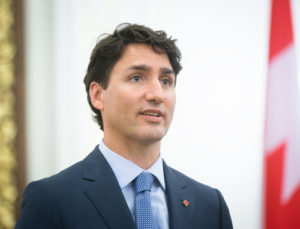
My latest Motley Fool blog looks at whether the Liberal Government intends to implement any suggestions by its Economic Advisory Council about raising the Retirement Age. See Will the Looming Federal Budget Try to Slip by Another Senior’s Benefit?
Of course, as one source says, the Government officially doesn’t want to raise the age of OAS and CPP eligibility from the current 65 to 67. After all, if it wanted to do that, all it had to do was leave in place the Harper administration’s policy that would have done just that for Old Age Security, albeit phased in gradually by the year 2023.
Even so, they must be sorely tempted, considering the fact that so many other Governments around the world are raising the retirement age to accommodate rising life expectancy patterns. The number of OAS recipients is expected to double over the next two decades, as more and more Baby Boomers take the plunge into Retirement, or at least Semi-Retirement.
Still, there’s more than one way to skin a cat. As I point out in the blog, anything as radical as raising the retirement age needs to be implemented gradually so as not to wreck the well-laid plans of financial advisors and clients who may have been counting on the rules as they now exist.
Delaying retirement age should be voluntary, not compelled by Government
The decision to delay retirement is a personal one and should be voluntary, not motivated by Ottawa’s need to keep us all in harness and paying high levels of income taxes for a few more years.
Still, the Advisory Council’s suggestion that they make it our worthwhile to delay OAS or CPP could end up as a win-win if implemented properly: many advisors (including regular Hub contributor Doug Dahmer) suggest delaying CPP/OAS as a matter of course in order to enjoy higher levels of inflation-adjusted income from those programs once they do start. Right now you can’t delay receipt of benefits of either CPP or OAS beyond 70 and as Rob Carrick wrote in Friday’s Globe, the vast majority of retirees in any case end up choosing the bird in the hand and take receipt of OAS as soon as they can at 65, and many do so for CPP as early as 60.
Part of the rationale, apart from needing the money, is a suspicion that the Government will eventually change the rules on us anyway, so why not take the money while the going is good?
Killing Age Credit at 65 would be an ominous sign
A good example of Ottawa’s changing the rules in mid stream is the trial balloon mentioned in John Ivison in Monday’s National Post: it’s suggested that the $7,125 Age Credit seniors qualify for at age 65 might be eliminated. That would surely provoke outrage from the many who have been waiting for 65 and the chance to collect OAS and to defer some of the tax on it.
It’s not like the Liberals haven’t tried to attack OAS recipients before. As I point out in the blog, in the mid 1990s the Jean Chretien Liberals tried to implement the so-called Seniors Benefit (under Finance Minister Paul Martin). It was a blatant attempt to accelerate clawbacks of OAS so that moderately affluent seniors would be denied benefits sooner than would otherwise have been the case. Fortunately the public outrage was sufficient to get the Government to change its mind.
20 years later and who knows whether our collective memories are short enough that they think they can try again. If they do so, I think they would soon find considerable opposition from the millions of baby boomers who have played by the rules and wouldn’t take kindly to them being changed in mid-stream.
Still, despite its alleged interest in helping the “middle” class, the Liberals were quick to kill the $10,000 annual TFSA contribution limit that was in effect the last year of the Conservative’s rule. For now we’re stuck with the previous $5,500 limit and my suggestion is that people maximize their TFSAs before the Budget, just in case this measure too gets watered down more.
As for the rest of it, we’ll just have to wait and see.
A Victory Lap does entail working a little longer
Ironically, my book Victory Lap Retirement — co-written with Mike Drak and a recent bestseller on the Globe & Mail non-fiction list — makes the case for delaying Retirement and remaining in the workforce at least part-time for a few years longer. But this is no contradiction: the key point is that taking a “Victory Lap” should be voluntary, something undertaken because you WANT to, not because you HAVE to financially speaking.
Similarly, it would be fair game for the Liberals to tempt us to delay retirement by making it worth our while to do so: raising CPP and OAS benefits by inducing us to wait until even beyond 70.
Lowering RRIF minimum annual withdrawals should be considered
While they’re at it, they should also consider raising the age that RRSPs must be converted into (taxable) RRIFs and lower the minimum annual withdrawal amount once they do. That would be consistent with the trend to extended longevity and lower the chances of running out of money in advanced old age; but of course it would also mean Ottawa would have to delay its chance at taxing those nest eggs as funds are withdrawn.
Done properly, some of these measures may make sense. But don’t deny the chance to retire as planned on schedule for those who are exhausted by work or are no longer physically or mentally able to work past 60 or 65, or indeed even to find willing employers or clients.

